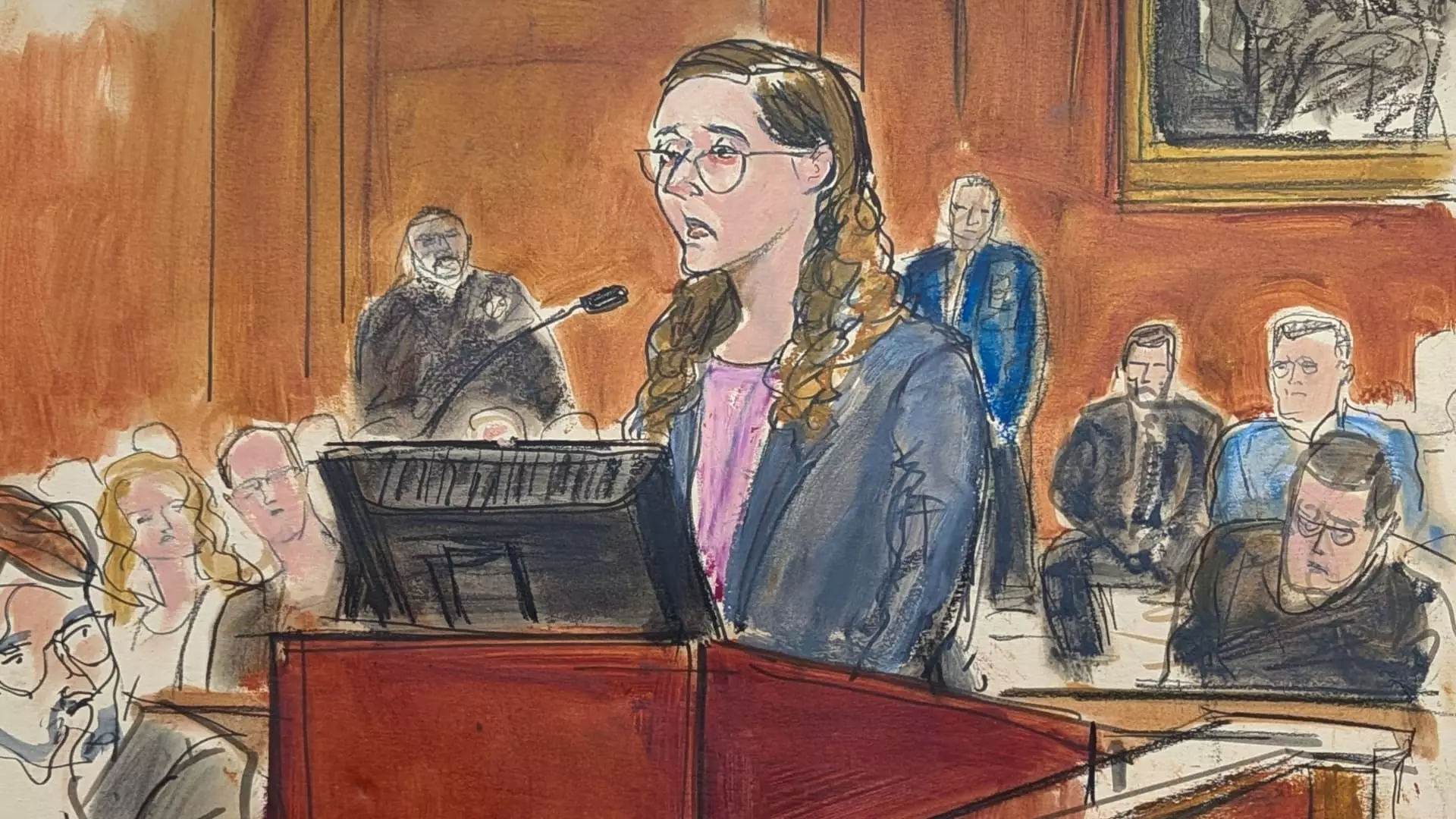In a stunning downfall that captivated the financial world, FTX, once lauded as a premier cryptocurrency exchange, came crashing down, unveiling a multi-billion-dollar fraud scheme led by its founder, Sam Bankman-Fried. The reverberations of this collapse extended beyond the financial sphere, leading to significant legal repercussions for participants in this vast enterprise. Among those ensnared in the fallout was Caroline Ellison, who previously held a substantial role as CEO of Alameda Research, a hedge fund intricately tied to FTX. Recently, Ellison faced a federal judge in New York, where her sentencing marks a significant chapter in this unfolding drama.
On a day marked by palpable tension, Caroline Ellison was sentenced to a surprising two years in prison for her participation in the fraudulent activities that wreaked havoc on FTX and its customers. This outcome starkly contrasted with the lighter sentence recommended by the federal Probation Department, which suggested three years of supervised release without any incarceration. The sentencing decision highlights the complex interplay between cooperation with authorities and the severity of the fraud.
Judge Lewis Kaplan articulated that this ruling was not merely about Ellison’s individual actions but rather a broader message to deter others from engaging in similar misconduct. Kaplan expressed that the FTX scandal represents possibly the most significant financial fraud in U.S. history, underscoring the need for accountability. The hefty forfeiture of $11 billion further emphasized the seriousness of her offenses, making it clear that the repercussions of the fraud scandal would be felt long after the courtroom proceedings concluded.
A pivotal element in Ellison’s sentencing was her cooperation with federal investigators, which led to the conviction of Bankman-Fried. Throughout the trial, prosecutors lauded her willingness to provide vital evidence against her former boyfriend, casting a light on her role in the operation of Alameda Research and FTX. While Judge Kaplan recognized this cooperation as significant, he also argued that leniency must not overshadow the gravity of fraud perpetrated on such a colossal scale.
Ellison’s emotional expression during sentencing revealed her deep sense of remorse. She publicly apologized for her actions, displaying vulnerability that hinted at her internal struggles during a tumultuous period. Her attorney emphasized her desire for redemption and her newfound moral clarity. These aspects of her narrative played a crucial role in shaping the court’s perception of her character. Kaplan acknowledged her unique position among cooperators, suggesting that her sincerity set her apart yet still fell short of warranting an entirely lenient outcome.
The sentencing of Caroline Ellison illustrated a stark contrast to that of Sam Bankman-Fried, who, rejecting the opportunity to cooperate with prosecutors, faced a much harsher sentence of 25 years following his conviction on multiple fraud charges. The divergence in their respective paths raises questions about the effectiveness of cooperative tactics in white-collar crime prosecutions.
Bankman-Fried’s appeals and claims of judicial bias further exacerbate the complexities surrounding the case. In contrast, Ellison’s acceptance of guilt and her cooperation seem to solidify her standing as a witness who helped prosecute a major figure in a scandal that shook the financial landscape. However, the duality of their stories serves as a reminder of the difficult moral choices faced by participants in high-stakes environments, where the line between compliance and complicity can blur.
The fallout from the FTX scandal goes beyond individual sentences; it raises questions about regulatory oversight in cryptocurrency markets and the ethical responsibilities of executives. With Ellison’s plea deals and sentencing, along with that of other former executives such as Gary Wang and Nishad Singh, the case calls for a fundamental reexamination of the accountability mechanisms in place within the burgeoning financial technology sector.
This entire event underscores the pressing need for comprehensive regulations to prevent similar frauds from occurring in the future. As cryptocurrency continues to evolve, ensuring a balance between innovation and investor protection will be paramount. The insights gleaned from the FTX collapse, particularly the roles of key figures like Ellison, will likely influence legislative discussions and regulatory frameworks for years to come.
The sentencing of Caroline Ellison serves as a cautionary tale about the perils of unchecked ambition and the moral dilemmas faced by individuals entangled in financial enterprises. It encapsulates an intricate narrative of guilt, remorse, and the complexities inherent in the legal repercussions of corporate fraud. As the dust settles from the FTX debacle, the implications for both investors and those operating in the cryptocurrency realm will continue to resonate, prompting a renewed focus on ethics, accountability, and regulatory reform in a rapidly evolving market.

